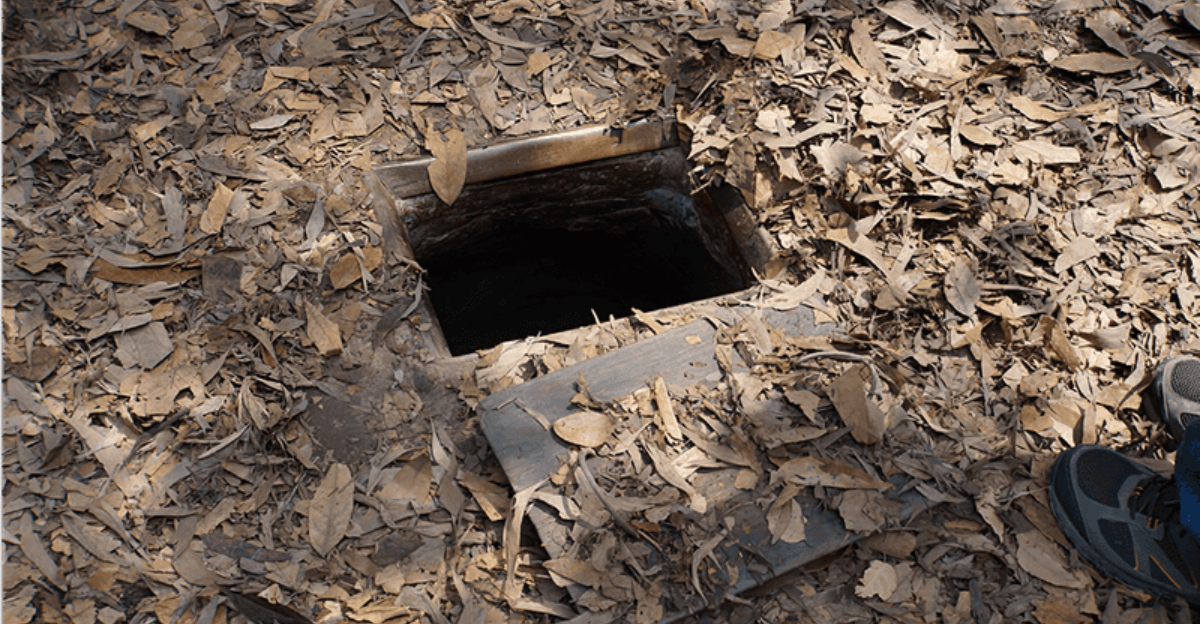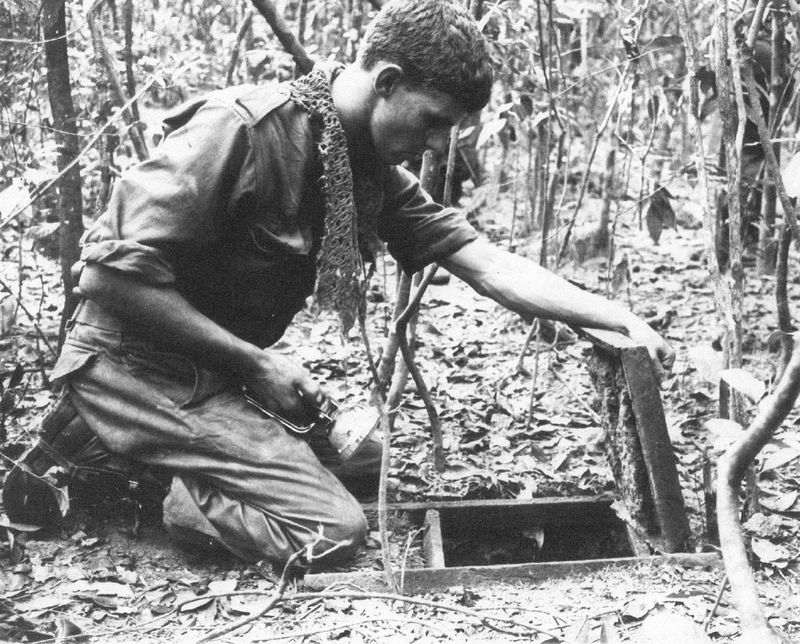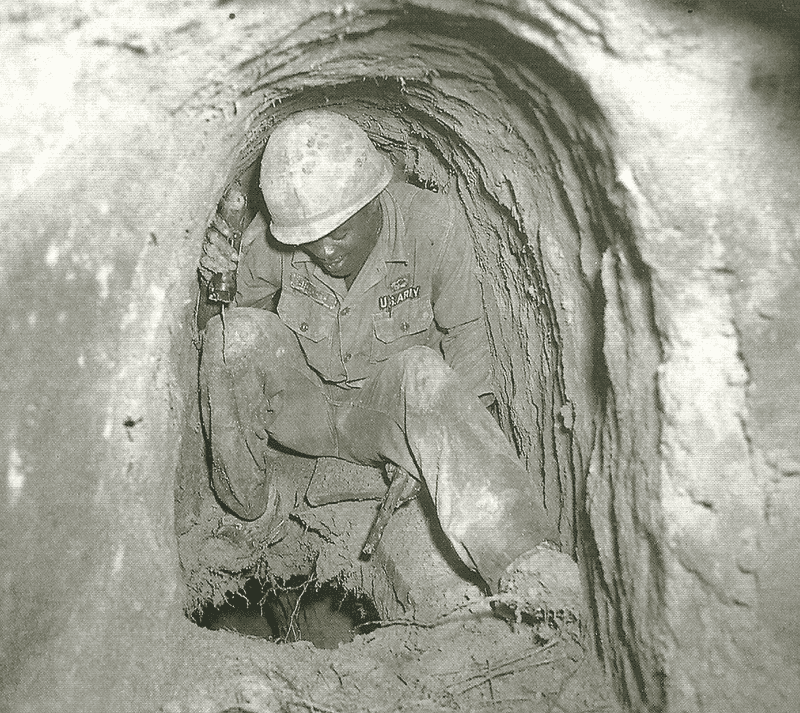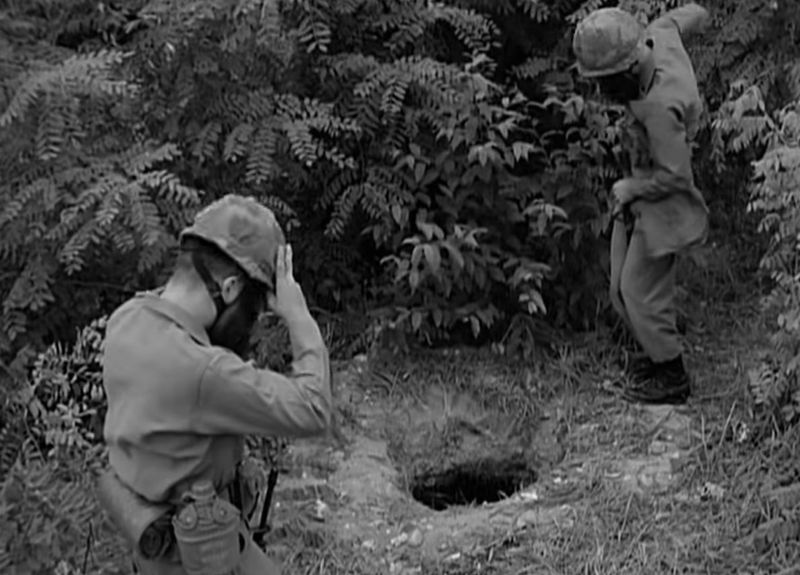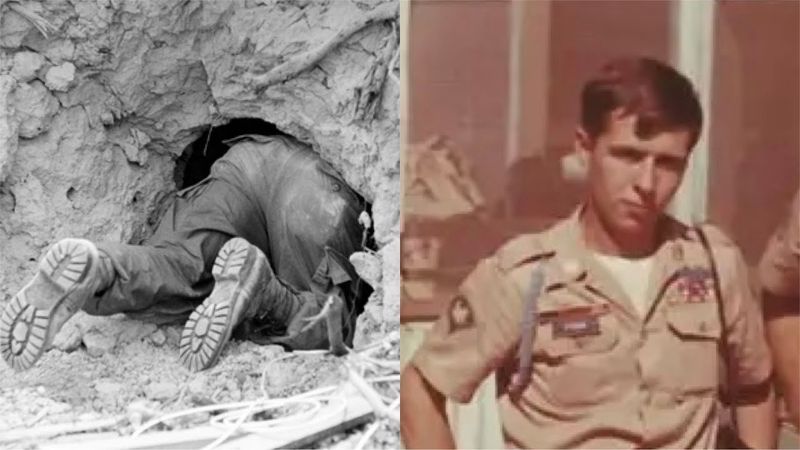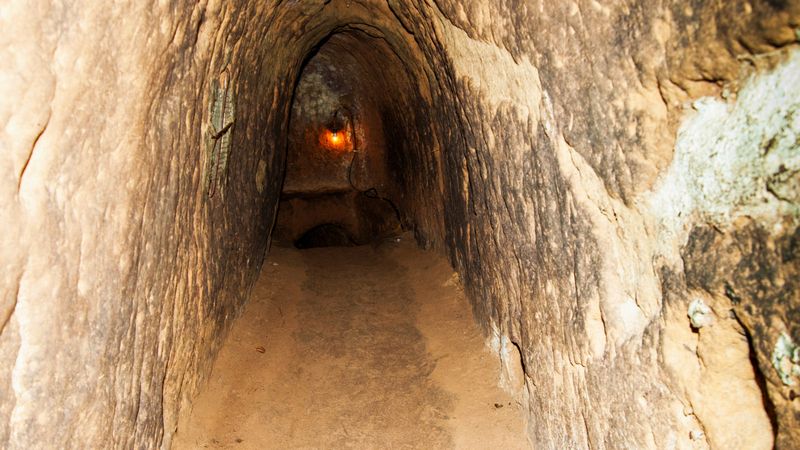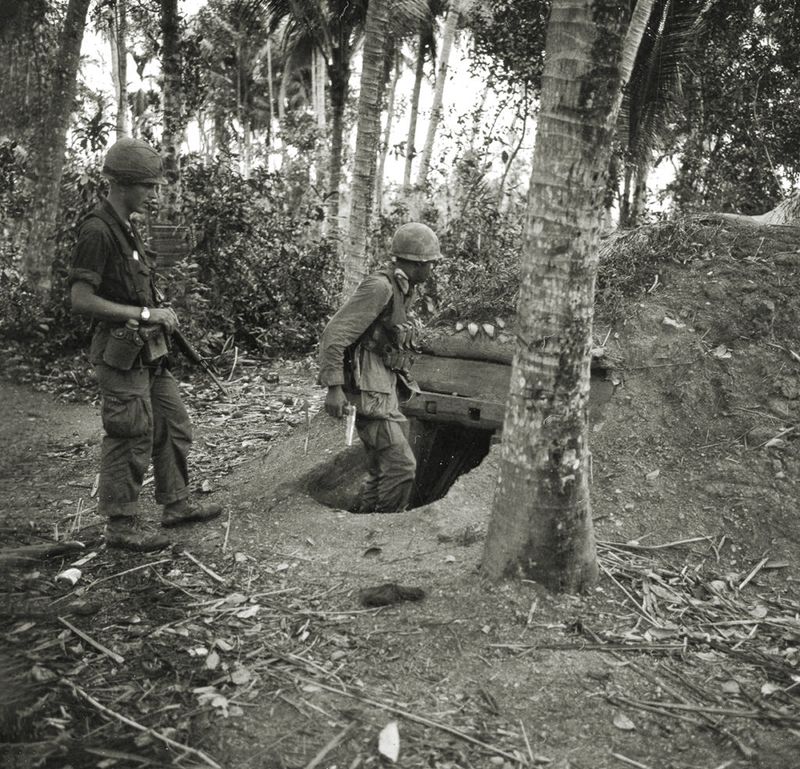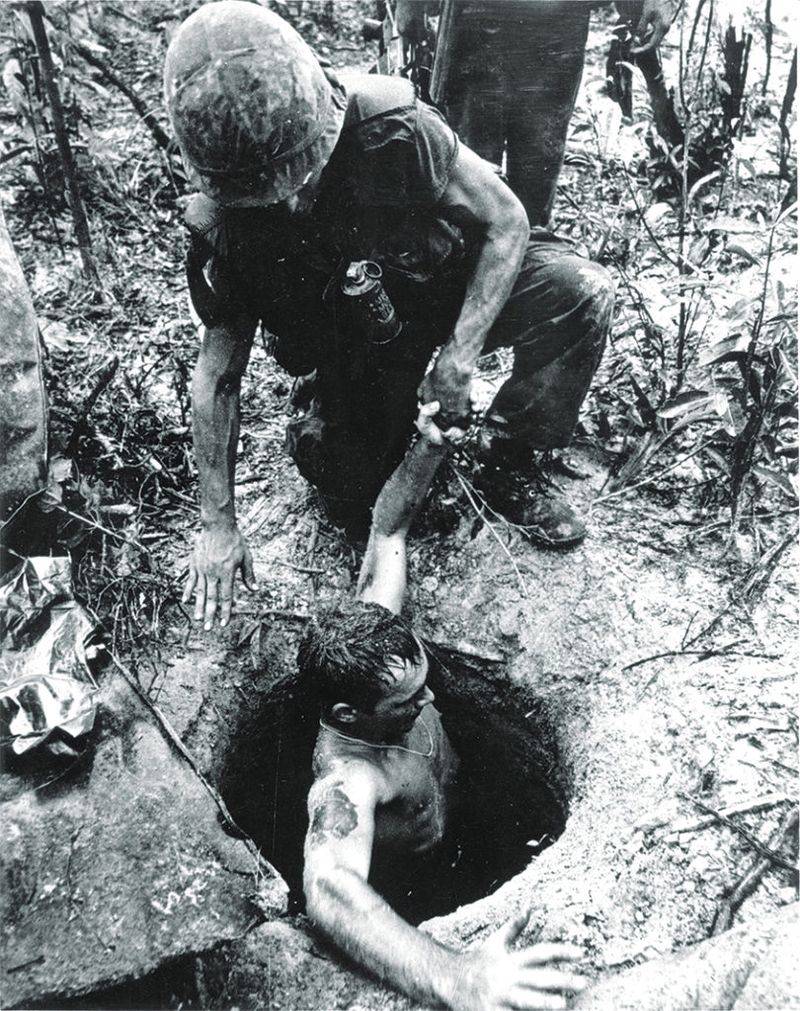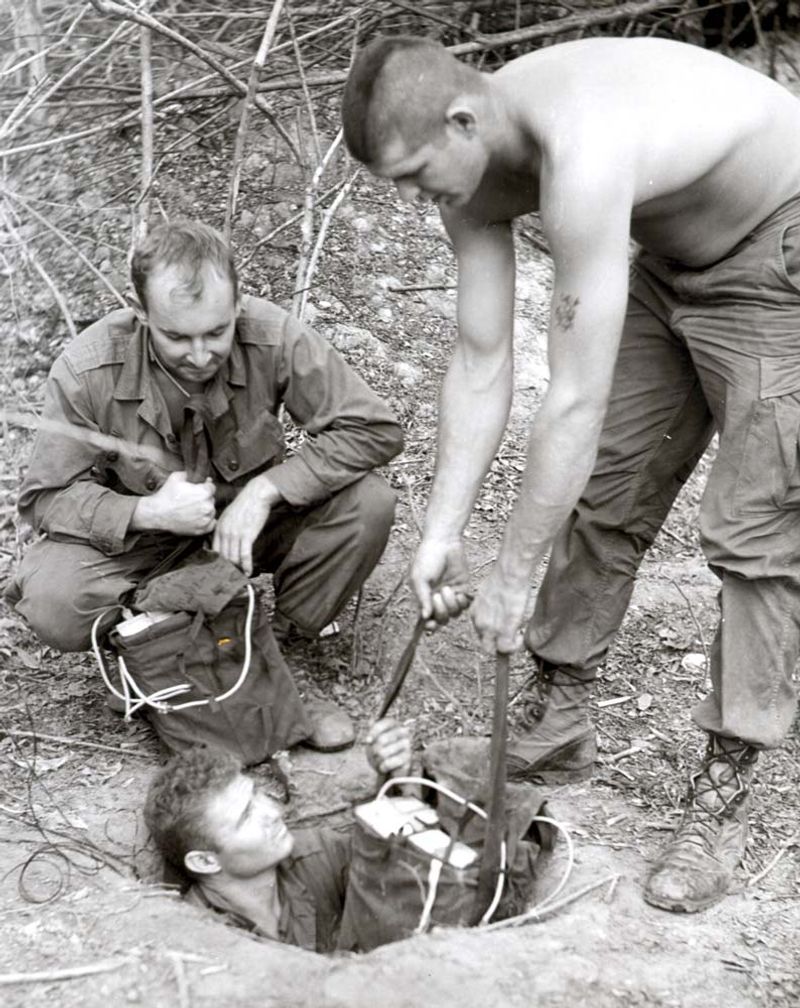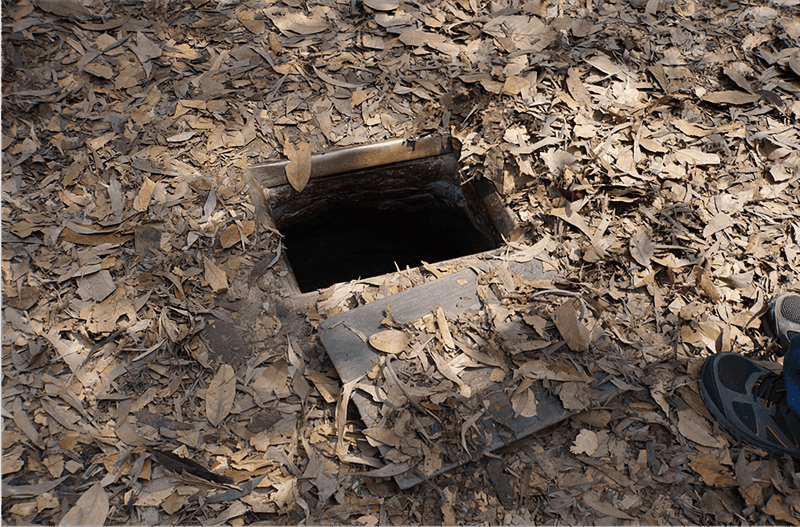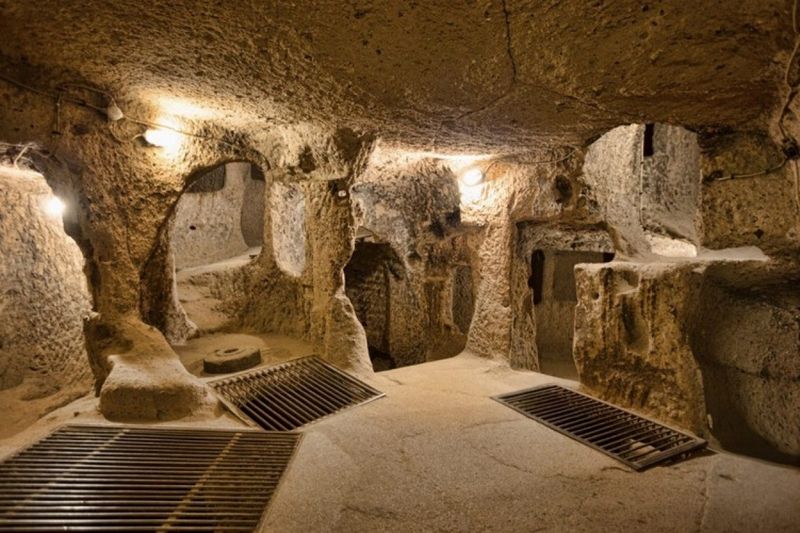During the Vietnam War, a group of brave soldiers known as Tunnel Rats embarked on perilous missions into the intricate network of underground tunnels constructed by the Viet Cong.
These volunteers faced unimaginable dangers to gather intelligence and disrupt enemy operations.
This blog post uncovers ten intriguing facts about these courageous individuals and their crucial role in the war.
1. Tunnel Rats Were Volunteers
Tunnel Rats were a unique group of soldiers who volunteered for a challenging and dangerous task. Unlike many military assignments, soldiers chose this path, driven by a sense of duty and an adventurous spirit.
Typically selected from infantry units, these men possessed specific qualities that made them suitable for the job. Their smaller stature, calm demeanor, and exceptional courage under pressure were crucial traits.
Volunteering for such a perilous role required immense bravery. These men willingly faced the unknown, risking their lives to navigate the enemy’s subterranean domain. Their willingness to volunteer speaks volumes about their dedication.
2. They Were Usually Small in Stature
The physical demands of the Tunnel Rats’ mission required soldiers who could easily maneuver through cramped spaces. This role was typically suited to smaller, leaner men, often under 5’6″ and lightweight.
Their smaller frames allowed them to navigate the narrow, twisting tunnels without getting stuck. Additionally, agility and quick reflexes were essential traits for surviving in such an environment.
The ability to move swiftly and quietly was a crucial advantage. These physical characteristics, combined with mental resilience, made these soldiers ideally suited for the task of infiltrating and exploring the enemy’s intricate tunnel networks.
3. Their Mission Was Extremely Dangerous
The mission of a Tunnel Rat was fraught with peril. These soldiers faced numerous dangers, including booby traps, enemy combatants, venomous snakes, and spiders lurking in the dark.
The tunnels themselves were often unstable and could collapse without warning. Poison gas was another threat, requiring constant vigilance. Despite these hazards, Tunnel Rats persisted in their task, driven by a commitment to their mission.
Each step taken in the darkness required nerve and precision. The extreme danger of their mission highlighted their bravery and the critical role they played in the war effort.
4. Minimal Gear Was Used
In the confined spaces of the Viet Cong tunnels, heavy gear was impractical. Tunnel Rats carried only the essentials: a pistol, usually a .45 caliber, a flashlight to pierce the darkness, and a knife for utility and self-defense.
This minimal equipment allowed them to move freely within the tight confines, responding quickly to threats. The simplicity of their gear belied the complexity and danger of their mission.
Relying on skill and courage, Tunnel Rats needed to be resourceful, often adapting tools and tactics to suit the unpredictable challenges they encountered below ground.
5. Tunnel Complexes Were Massive
The elaborate tunnel systems constructed by the Viet Cong were extensive, stretching hundreds of miles in some cases. These tunnels served as more than mere passageways; they housed sleeping quarters, storage rooms, hospitals, and command centers.
The complexity of these underground networks reflected strategic ingenuity and allowed for sustained operations despite aerial and ground attacks. For Tunnel Rats, navigating these labyrinthine complexes was a daunting task.
Every tunnel held the potential for danger and discovery. The vastness and intricacy of these tunnels underscored the challenges faced by Tunnel Rats as they worked to disrupt enemy operations.
6. Booby Traps Were Everywhere
Navigating the tunnels was not only about overcoming physical constraints but also about avoiding deadly traps. The Viet Cong littered the tunnels with booby traps, including tripwires, punji pits, and grenades rigged to detonate.
These devices were designed to maim or kill intruders. Tunnel Rats had to be constantly alert, using their keen senses to detect and disable these threats. Their ability to remain calm and focused under pressure was crucial.
Successfully navigating these hazards required a blend of skill, intuition, and nerves of steel, attributes that defined the Tunnel Rats’ dangerous mission.
7. They Gathered Intelligence
Beyond clearing tunnels, Tunnel Rats played a vital role in gathering intelligence. Their missions often involved searching for maps, documents, and weapons caches that could provide insights into Viet Cong operations.
The information they uncovered was invaluable, offering strategic advantages to allied forces. This intelligence-gathering aspect of their role required meticulous attention to detail and a keen sense of observation.
Tunnel Rats had to be discerning, recognizing the significance of seemingly mundane items. Their efforts to collect and relay crucial information significantly contributed to the overall war effort and the safety of their fellow soldiers.
8. They Used Improvised Tactics
The unpredictable nature of the tunnels demanded innovation. Tunnel Rats often developed improvised tactics to navigate and survive their perilous environment. This included modifying weapons or crafting homemade tools to enhance safety and exploration.
The ability to adapt to unforeseen challenges was a defining trait. These soldiers’ resourcefulness was crucial, allowing them to overcome obstacles and succeed in their missions. The constant need to invent new solutions underscored the complexity and danger of their work.
Tunnel Rats’ ingenuity in the face of adversity was a testament to their determination and skill in dealing with the uncertainties of tunnel warfare.
9. Psychological Strain Was Intense
The psychological toll of being a Tunnel Rat was immense. Operating in claustrophobic, pitch-black environments with the constant threat of ambush weighed heavily on these soldiers.
The isolation and stress of their missions often led to long-term psychological effects. Many Tunnel Rats experienced anxiety and post-traumatic stress disorder as a result of their experiences.
Coping with the mental demands required resilience and support from fellow soldiers. The psychological challenges they faced were as daunting as the physical dangers, highlighting the comprehensive bravery and sacrifice required in their unique and perilous role during the war.
10. They Played a Crucial Role
Despite their small numbers, Tunnel Rats made a significant impact on the Vietnam War. Their missions uncovered vital intelligence that disrupted Viet Cong operations and saved countless lives.
The critical nature of their work often went unnoticed, yet their contributions were indispensable. By entering the dangerous underground networks, they gained valuable insights and neutralized threats.
Their courage and tenacity were instrumental in the broader war strategy. Tunnel Rats exemplified the resilience and determination needed to succeed in difficult conditions, and their legacy continues to be a testament to their important role in history.
